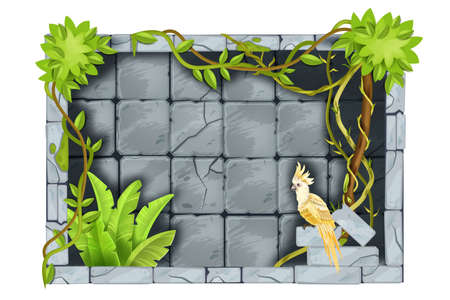Understanding UK Slugs and Snails
If you have an allotment in the UK, slugs and snails are likely familiar faces among your crops. These creatures thrive in Britain’s mild, damp climate, making our gardens and allotments the perfect home for them. The most common species you’ll encounter include the grey field slug (Deroceras reticulatum), the large black slug (Arion ater), and the garden snail (Cornu aspersum). Each of these has a remarkable ability to find tender shoots and leaves, especially after a rainfall or during humid nights.
The grey field slug is small but causes significant damage by feeding on seedlings and leafy greens. The large black slug is less picky, munching on both decaying matter and live plants. Garden snails are easily recognised by their spiral shells and love soft foliage. Slugs and snails are mainly nocturnal, hiding under pots, stones, or dense vegetation during the day. Their love for moisture helps them move around easily and keeps them from drying out. This, paired with the UK’s frequent rain and moderate temperatures, explains why they flourish here.
Understanding these pests’ habits is the first step towards protecting your allotment. By recognising their favourite hiding spots and feeding times, you’ll be better prepared to keep your plot safe from harm.
Preventative Measures for Allotment Plots
Keeping your allotment safe from slugs and snails in the UK starts with smart, preventative strategies. By making your plot less appealing to these persistent pests, you’ll reduce their numbers naturally and protect your crops before problems arise.
Tidy Plot Maintenance
Slugs and snails love damp, sheltered hiding spots. Regular maintenance is key:
| Task | Benefit |
|---|---|
| Remove weeds and debris | Eliminates slug shelters and breeding grounds |
| Keep grass edges trimmed | Reduces moist areas where slugs hide during the day |
| Clear up old plant material | Prevents slugs from feasting on decaying matter near crops |
Effective Mulching Methods
The right mulch can both feed your soil and deter pests. In the UK’s damp climate, consider these options:
| Mulch Type | Slug & Snail Deterrent? | Best Use Tips |
|---|---|---|
| Bark chips or wood shavings | Yes – rough texture deters movement | Spread around veg beds; avoid touching stems directly |
| Crushed eggshells or horticultural grit | Yes – sharp edges discourage crawling pests | Create a barrier around vulnerable plants like lettuces or strawberries |
| Compost or leaf mould | No – may attract slugs if too moist or thickly applied | Use sparingly and keep surface dry where possible |
Additional Practical Tips
- Water in the morning: Evening watering creates ideal conditions for slugs overnight. Watering early allows soil to dry by dusk.
- Avoid dense planting: Spacing plants well improves airflow and limits shady, moist pockets where pests thrive.
- Lifting pots: Place pots on gravel trays or pot feet to prevent slugs nesting underneath.
- Tidy up after harvest: Removing spent crops promptly keeps plots less inviting year-round.
Together, these measures create an environment that’s less friendly to slugs and snails, helping your allotment flourish throughout the British growing season.

3. Natural Barriers and Traditional Remedies
When it comes to protecting your UK allotment from slugs and snails, sometimes the old ways are the best. Not only are natural barriers and traditional remedies eco-friendly, but they also blend beautifully into your garden’s aesthetic. Here are some tried-and-tested British allotmenteer tricks that keep your patch looking lovely while discouraging those pesky molluscs.
Copper Tape: Stylish and Effective
Copper tape is a classic solution for slug and snail control in British gardens. This simple strip can be wrapped around pots, raised beds, or even greenhouse staging. The gentle metallic sheen of copper adds a subtle decorative touch, while its natural properties give slugs and snails an unpleasant tingling sensation, keeping them at bay without harming them or the environment.
Eggshells: Rustic Charm
Scattering crushed eggshells around your prized plants serves two purposes: the jagged edges deter soft-bodied pests, and their white fragments lend a rustic, lived-in charm to your plot. Collect eggshells throughout the week, rinse and dry them, then crush them by hand before spreading around lettuces, strawberries, or any vulnerable seedlings. This time-honoured method has been favoured by generations of British gardeners for its simplicity and sustainability.
Other Allotmenteer Favourites
Wool Pellets
Naturally abrasive wool pellets are gaining popularity among UK growers. When watered, these pellets swell to form a rough mat that slugs dislike crossing—plus, they break down over time to enrich the soil.
Sand and Grit
A sprinkling of horticultural sand or sharp grit creates an unattractive surface for slugs and snails while subtly enhancing the structure of your beds and borders.
Pine Needles
If you have access to pine trees locally, gather fallen needles to create a scented barrier that looks neat and deters molluscs with its texture and acidity.
Blending Function with Beauty
The joy of these remedies is how seamlessly they fit into the British allotment tradition—each one practical yet pleasing to the eye. By using what nature provides or reusing household scraps, you’re not just protecting your crops; you’re also honouring the sustainable spirit that defines UK gardening culture.
4. Eco-friendly Slug and Snail Control Options
Protecting your allotment from slugs and snails doesn’t mean you have to resort to harsh chemicals. There are several organic and wildlife-friendly solutions that work effectively, while still supporting the local ecosystem. Here’s a look at some of the best eco-friendly methods used by UK gardeners.
Beer Traps
Beer traps are a classic British favourite for controlling slugs and snails organically. Simply bury a shallow container in the soil so its rim is level with the ground, then fill it with beer. The yeasty scent attracts slugs and snails, which then fall in and cannot escape. Remember to empty and refill your traps regularly, especially after heavy rain.
Nematodes
Nematodes are microscopic worms that naturally target slugs. Available from most UK garden centres, these biological controls are mixed with water and watered onto the soil. They seek out slugs underground, making them particularly effective for young seedlings and root crops.
| Control Method | How It Works | Best For |
|---|---|---|
| Beer Traps | Attracts and drowns slugs/snails using yeast scent | Border areas, raised beds |
| Nematodes | Parasitic action on slug larvae in soil | Vegetable patches, seedlings |
Companion Planting
This traditional approach involves planting certain species together to deter pests naturally. For example, growing strong-scented herbs like rosemary or mint near susceptible crops can help keep slugs at bay. Marigolds are also known to repel snails and add a splash of colour to your plot.
Popular Companion Plants for Slug & Snail Deterrence:
- Garlic – works as a natural repellent around lettuce and brassicas
- Chives – deters both slugs and aphids
- Sage – discourages pests when planted near cabbages
A Wildlife-Friendly Balance
While protecting your crops, remember that some wildlife such as birds, frogs, and hedgehogs are natural slug predators. By encouraging these visitors—perhaps by adding a small pond or log pile—you’ll create a balanced allotment ecosystem where nature lends a helping hand in pest control.
5. When to Use Commercial Solutions
If your natural methods are struggling against a relentless army of slugs and snails, it may be time to consider commercial options approved for use in the UK. While organic approaches should always be your first line of defence, responsible use of slug pellets and chemical treatments can offer effective backup—especially during peak infestation periods or when protecting young, vulnerable plants.
Choosing British-Approved Products
Always look for products that carry approval from UK regulatory bodies. This ensures they meet local environmental and safety standards. Ferric phosphate-based pellets are widely recommended as a safer choice compared to older metaldehyde varieties, which are now banned in the UK due to their harmful impact on wildlife, pets, and waterways.
How to Apply Pellets Responsibly
- Use sparingly: Scatter pellets thinly around the base of at-risk plants—never create piles.
- Avoid rain: Apply when dry weather is forecast to prevent run-off into soil and water sources.
- Follow instructions: Stick closely to the manufacturer’s guidelines for both quantity and frequency of application.
Consider Non-Pellet Chemical Options
Some liquid barriers and sprays are also available, but always check labels for suitability in edible gardens. Avoid overuse, as excessive chemicals can harm beneficial insects and disrupt your allotment’s natural balance.
A Balanced Approach
Remember, chemical solutions should complement—not replace—your ongoing efforts with barriers, hand-picking, and habitat management. By using British-approved products mindfully and only when absolutely necessary, you can keep your allotment productive while caring for local wildlife and the wider environment.
6. Long-term Allotment Planning and Community Tips
Designing an allotment for long-term success means thinking beyond quick fixes and focusing on creating a resilient, balanced ecosystem. Begin by planning your plot with crop rotation in mind; this reduces the build-up of pests like slugs and snails while keeping the soil healthy. Choose slug-resistant varieties and companion plants, such as garlic, rosemary, and fennel, which can naturally deter these common garden nuisances.
Building Natural Barriers
Consider permanent features such as raised beds with copper tape edges or gravel paths, both effective at discouraging slugs and snails from invading your crops. Mulching with sharp materials like crushed eggshells or horticultural grit not only improves soil structure but also creates uncomfortable surfaces for pests to cross.
Encouraging Wildlife Allies
Create habitats for natural predators—hedgehogs, frogs, and birds—by adding log piles, ponds, or native hedges. These allies help keep slug and snail populations under control without harming your plants or the environment.
Sharing Knowledge on Site
The strength of British allotment culture lies in its community spirit. Share tips and successful strategies with fellow allotmenteers, whether that’s through informal chats over the fence or organised workshops. Swap surplus seeds and plants known for their resilience against pests, and consider setting up communal compost bins or wildlife areas to benefit everyone on site.
By planning ahead and working together, you not only protect your own plot but contribute to a healthier, more vibrant allotment community that thrives year after year.


